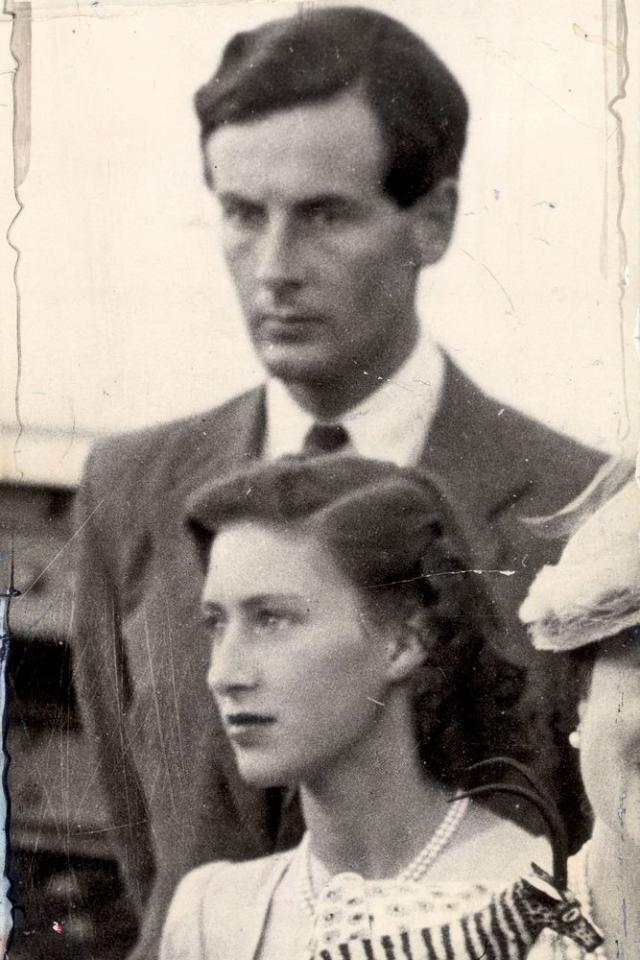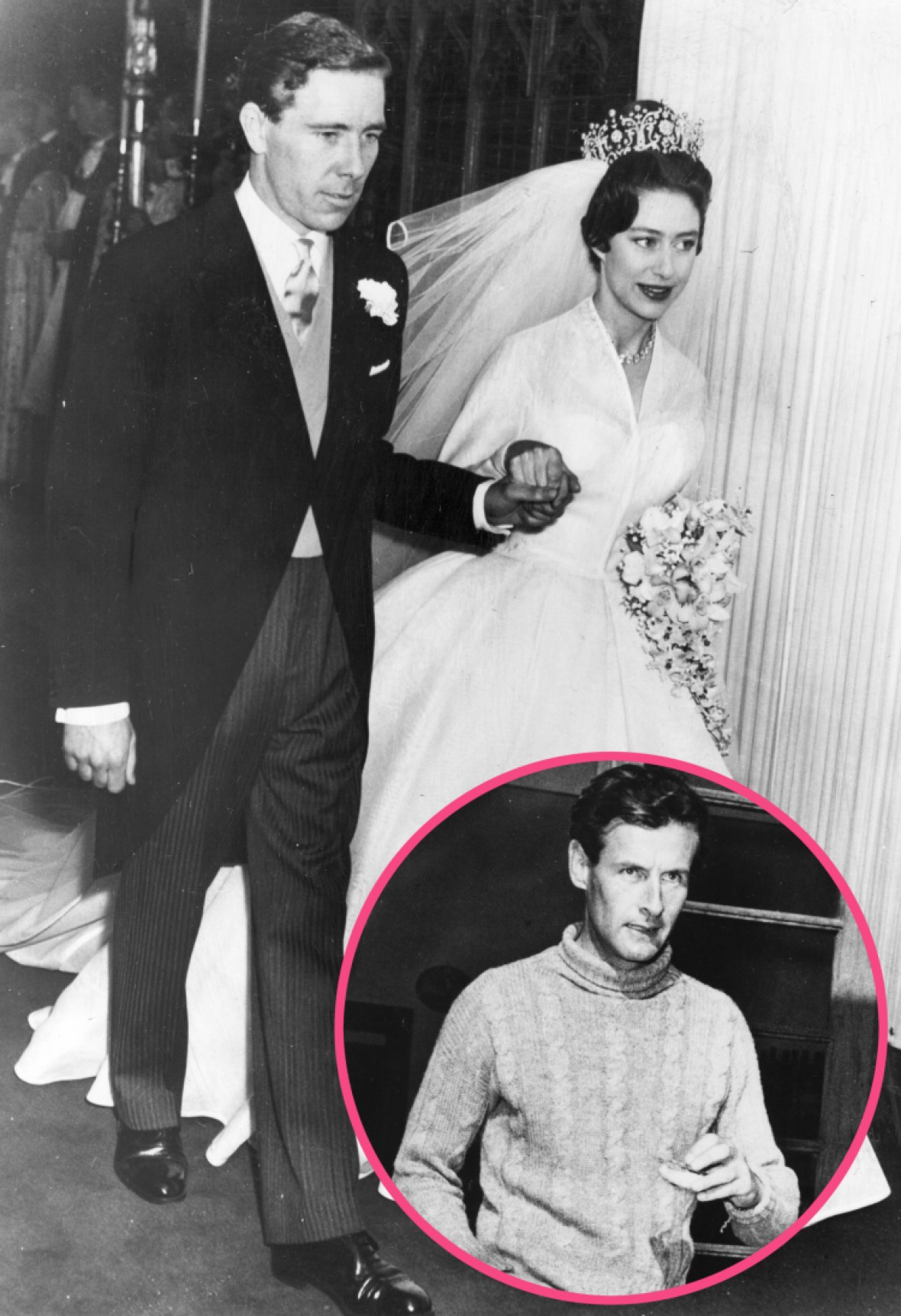The story of Princess Margaret and Peter Townsend is a timeless tale of love, duty, and sacrifice that captivated the world during the mid-20th century. Their romance was not just a personal matter but a significant event in British royal history, as it challenged the conventions of the time and tested the boundaries of monarchy and personal freedom. This article dives deep into their relationship, exploring the challenges they faced and the legacy they left behind.
Princess Margaret, the younger sister of Queen Elizabeth II, was a central figure in the British royal family. Her relationship with Peter Townsend, a divorced commoner and equerry to King George VI, became one of the most talked-about affairs of the 1950s. The scandalous nature of their romance brought the monarchy under intense scrutiny, raising questions about the role of royal family members in matters of the heart.
While the romance between Princess Margaret and Peter Townsend ultimately did not result in marriage, it remains a poignant reminder of the complexities of royal life. This article will explore their love story, its historical context, and its lasting impact on the British monarchy. We will delve into the challenges they faced, the societal norms of the time, and the ultimate decisions that shaped their lives.
Read also:Why Jerrys Barber Shop Stands Out In The Haircut Industry
Table of Contents
- Biography of Princess Margaret and Peter Townsend
- Early Life and Background
- The Romance Between Princess Margaret and Peter Townsend
- Challenges They Faced
- Public Reaction and Media Coverage
- Legal and Constitutional Issues
- The Legacy of Their Love Story
- Personal Life After the Breakup
- Historical Context of the Relationship
- Conclusion
Biography of Princess Margaret and Peter Townsend
Biographical Details of Princess Margaret
Princess Margaret Rose was born on August 21, 1930, at Glamis Castle in Scotland. She was the younger daughter of King George VI and Queen Elizabeth (later known as the Queen Mother). From a young age, Princess Margaret was known for her charm, wit, and rebellious spirit. Below is a table summarizing her key biographical details:
| Full Name | Princess Margaret Rose |
|---|---|
| Date of Birth | August 21, 1930 |
| Place of Birth | Glamis Castle, Scotland |
| Parents | King George VI and Queen Elizabeth |
| Spouse | Antony Armstrong-Jones (married in 1960) |
| Children | David Linley and Lady Sarah Chatto |
Biographical Details of Peter Townsend
Peter Townsend was born on June 18, 1914, in London, England. He served as an equerry to King George VI and later became a prominent figure in British military and diplomatic circles. Below is a table summarizing his key biographical details:
| Full Name | Peter Wilder Townsend |
|---|---|
| Date of Birth | June 18, 1914 |
| Place of Birth | London, England |
| Occupation | Equerry to King George VI, RAF officer, diplomat |
| Marital Status | Divorced (from Rosemary Hume) |
Early Life and Background
Princess Margaret grew up in the shadow of her sister, Queen Elizabeth II, but she carved out her own identity as a vibrant and modern royal. Her early life was marked by privilege and responsibility, as she was expected to uphold the values of the monarchy. Meanwhile, Peter Townsend's background in the military and his role as an equerry to the king placed him at the center of royal life. Their paths crossed frequently, setting the stage for their eventual romance.
The Romance Between Princess Margaret and Peter Townsend
The romance between Princess Margaret and Peter Townsend began in the early 1950s, during a period of transition for the British monarchy. As an equerry to King George VI, Townsend had frequent interactions with the royal family, and his charm and intelligence made him a favorite among the royals. Over time, a deep bond developed between him and Princess Margaret, leading to a romantic relationship that would shock the world.
Key Moments in Their Relationship
- 1952: Princess Margaret and Peter Townsend first meet while Townsend is serving as an equerry to King George VI.
- 1953: Their relationship becomes more serious, with reports of secret meetings and growing affection.
- 1955: The romance becomes public knowledge, sparking intense media coverage and debate.
Challenges They Faced
The relationship between Princess Margaret and Peter Townsend was fraught with challenges. As a divorced commoner, Townsend was not considered a suitable match for a member of the royal family. Additionally, the Act of Settlement 1701 prohibited members of the royal family from marrying Catholics, further complicating their union. The Church of England's stance on divorce also played a significant role in the controversy surrounding their relationship.
Key Challenges
- Divorce: Townsend's previous marriage to Rosemary Hume was a major obstacle, as divorce was not widely accepted in the 1950s.
- Religious Differences: Townsend was a Catholic, which posed a problem under the Act of Settlement.
- Public Opinion: The British public was divided on the issue, with some supporting the couple's right to love and others insisting on maintaining royal tradition.
Public Reaction and Media Coverage
The romance between Princess Margaret and Peter Townsend generated widespread media coverage and public debate. Newspapers around the world followed the story closely, with headlines often focusing on the scandalous nature of their relationship. Some viewed their love as a symbol of modernity and personal freedom, while others saw it as a threat to the stability of the monarchy.
Read also:Jack Orsquolantern World The Enchanting Global Celebration Of Carved Pumpkins
Media Coverage
- British tabloids sensationalized the story, often exaggerating the details to increase readership.
- International media also covered the romance, highlighting its significance in the context of post-war Europe.
Legal and Constitutional Issues
The relationship between Princess Margaret and Peter Townsend raised several legal and constitutional concerns. Under British law at the time, members of the royal family required the monarch's permission to marry. Additionally, the Act of Settlement prohibited members of the royal family from marrying Catholics, which further complicated their union. These legal hurdles ultimately played a significant role in the decision to end the relationship.
Key Legal Issues
- Monarch's Consent: Princess Margaret needed Queen Elizabeth II's approval to marry.
- Act of Settlement: Townsend's Catholic faith made him an unsuitable match under the Act of Settlement.
The Legacy of Their Love Story
The romance between Princess Margaret and Peter Townsend left a lasting legacy on the British monarchy. It highlighted the tension between royal duty and personal freedom, paving the way for future generations of royals to pursue relationships outside the traditional boundaries of the monarchy. Although their love story did not result in marriage, it remains a powerful symbol of the complexities of royal life.
Impact on the Monarchy
- Shift in Public Perception: The story helped to humanize the royal family, showing that they too faced personal challenges and emotional struggles.
- Modernization of Royal Rules: In the decades that followed, the monarchy began to loosen its strict rules on marriage and personal relationships, reflecting changing societal norms.
Personal Life After the Breakup
After the end of her relationship with Peter Townsend, Princess Margaret went on to marry Antony Armstrong-Jones in 1960. While her marriage was initially seen as a success, it ultimately ended in divorce in 1978. Peter Townsend, on the other hand, remarried and settled in Belgium, where he lived out the remainder of his life.
Historical Context of the Relationship
The romance between Princess Margaret and Peter Townsend took place during a period of significant change in British history. The post-war era saw a shift in societal norms and expectations, with increasing emphasis on personal freedom and individual rights. The monarchy itself was undergoing a transformation, as it sought to adapt to the changing times while maintaining its traditional role.
Conclusion
The story of Princess Margaret and Peter Townsend is a testament to the enduring power of love and the complexities of royal life. Their romance challenged the conventions of the time, raising important questions about the role of personal freedom in the context of duty and tradition. While their love story did not have a happy ending, it left a lasting impact on the British monarchy and paved the way for future generations of royals to pursue relationships that reflect the values of their time.
We invite you to share your thoughts on this fascinating story in the comments section below. Additionally, feel free to explore other articles on our site that delve into the rich history and traditions of the British monarchy.
Sources:
- The Official Website of the British Monarchy
- Biography.com
- Historical archives of The Times and The Guardian


